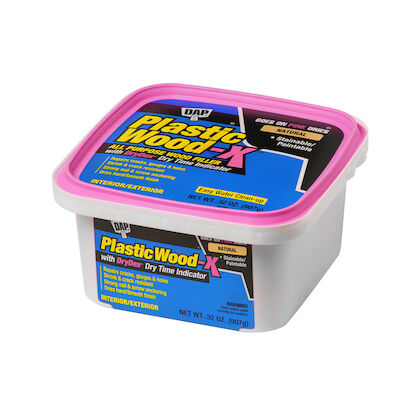Spackling compound is a catchall term for a variety of types of wood and drywall fillers.
Vinyl spackling vs wood filler.
Latex wood filler made from wood flour dust like wood particles can be thinned with water or a water based colorant to the ideal consistency or viscosity for filling grain.
True to its name this lightweight easy sanding spackling paste is formulated for drywall and plaster repair.
Sure they might all get the job done for awhile but each of these patches has a special purpose and a best place to use them.
Spackling compound for filling nail holes in wood trim or smaller holes in plaster drywall and even plastic trim a high quality lightweight non shrinking spackling compound is perfect.
Let s dive into it.
Hd crack shot vinyl spackling fast and final etc.
They all list wood as an acceptable substance although i have always thought of spackling in terms of repairing drywall dings.
Other products contain similar ingredients or may have a higher concentration of vinyl to give them a lighter weight and shorter drying time.
When looking for a fine grain filler choose a water borne grain filler that cleans up easily works with all types of film finishes and dries clear.
Spackle varieties include a lightweight formula made with a vinyl binding agent suitable for small holes or an all purpose formulation made with acrylic ideal for holes up to to inch in.
So what 39 s the best product to use for filling lots of holes in some.
It s a good question to ask.
Crawford s vinyl spackling paste.
Spackle is the brand name for a product consisting of clay calcium carbonate and vinyl polymers.
In short use caulk for corners and edges use wood filler for flat surfaces and use spackle for drywall.
The spacking seems to spread on much more easily than the wood filler.

